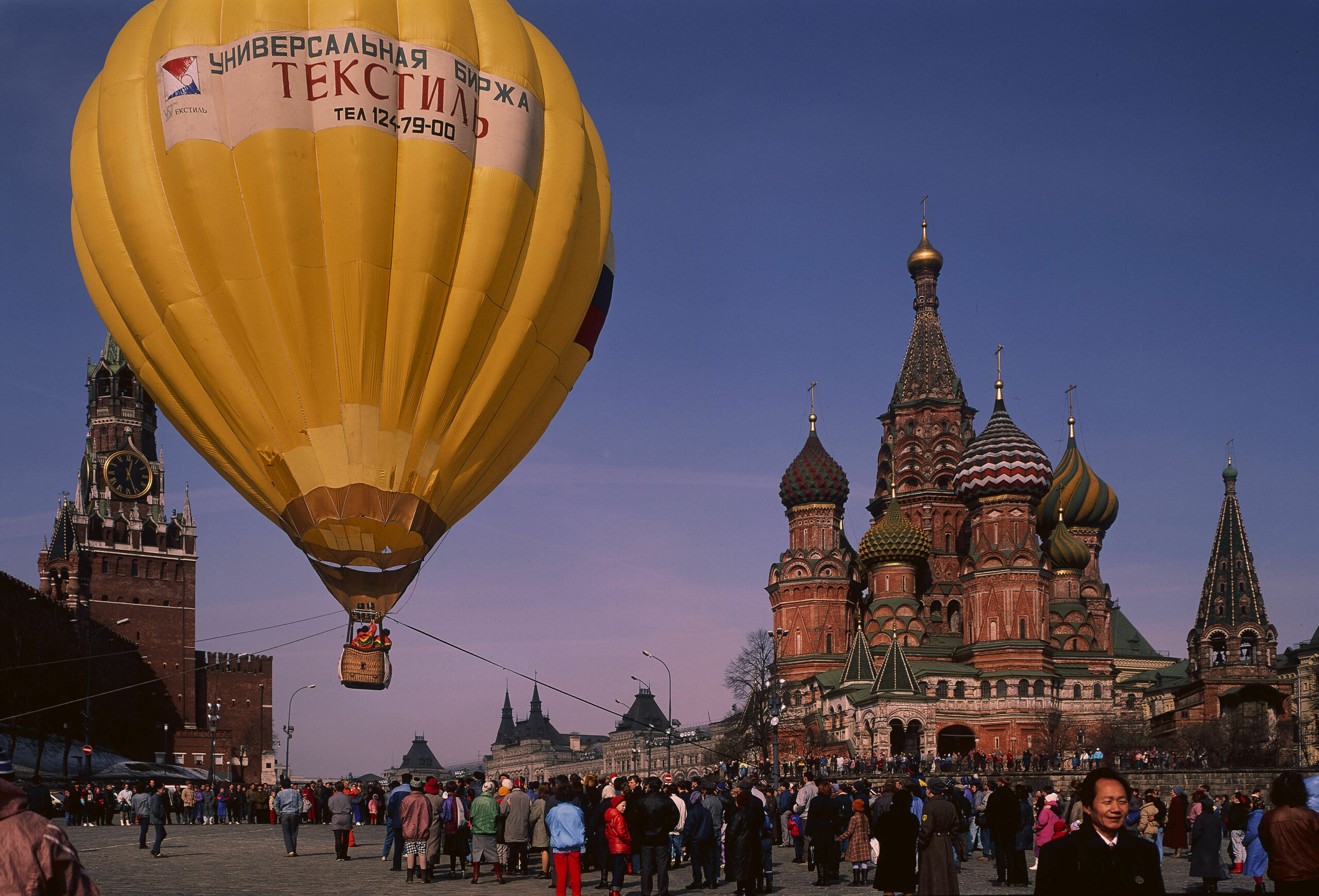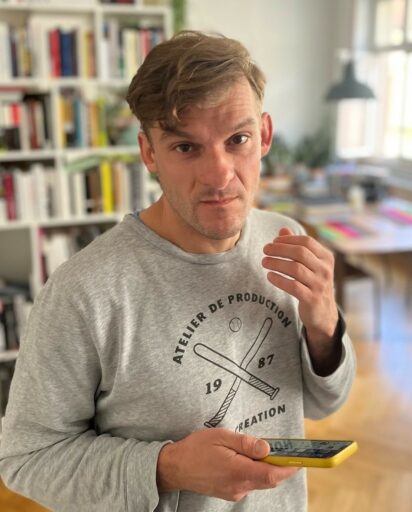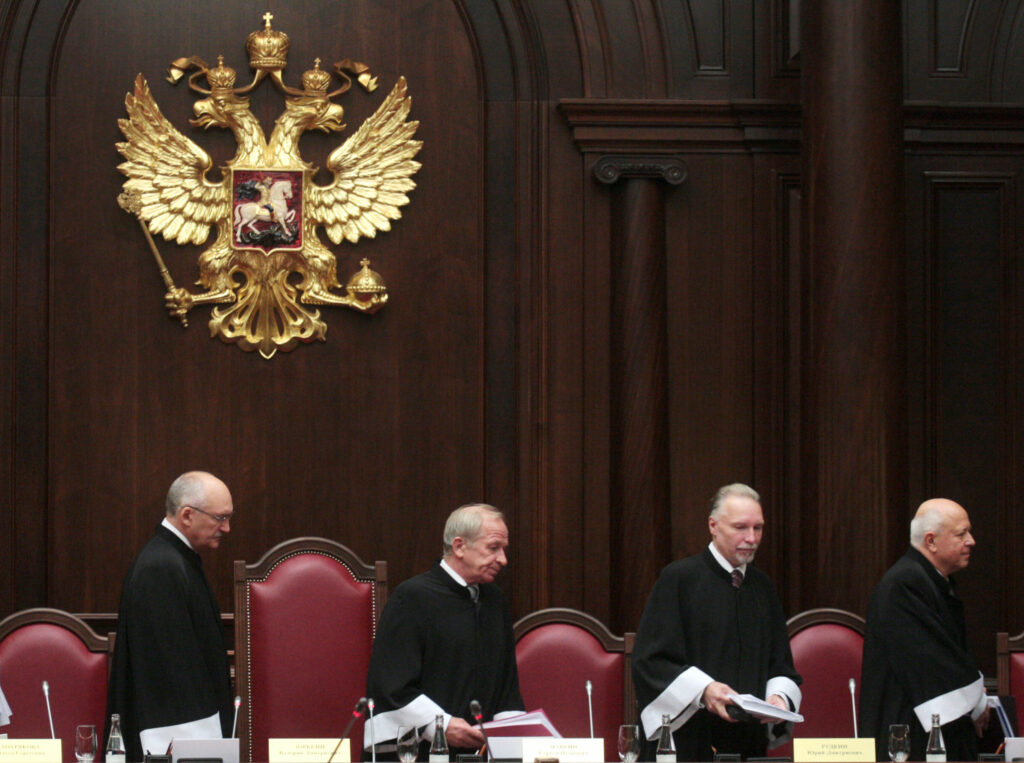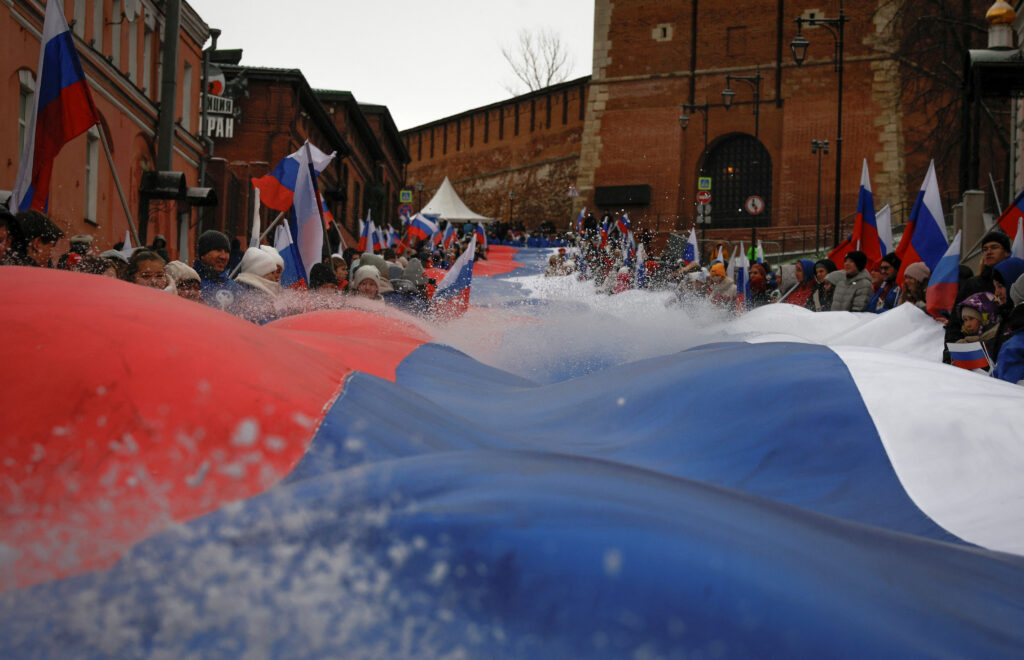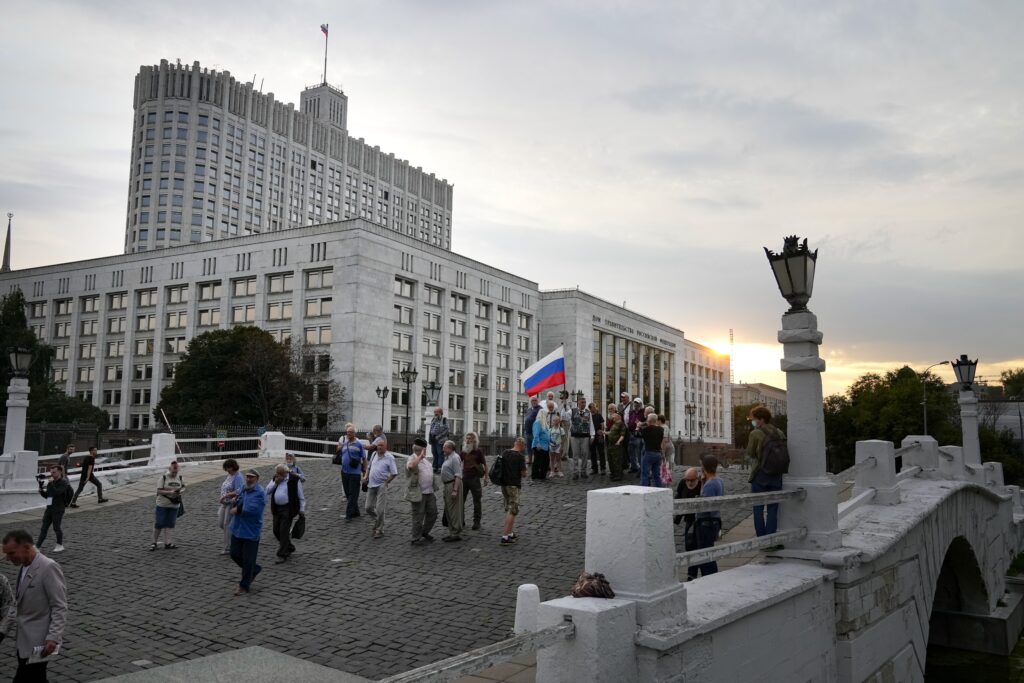It has been twenty-five years since the 1990s ended. Because memory is processual by nature, how we remember the 1990s has not remained static. Various factors have impacted our memories. The unfolding of the decade’s events, of course, made its imprint, but also our different habits and life experiences, as well as media and cultural products like Aleksei Balabanov’s films Brother (1997) and Brother 2 (2000). Political instrumentalization has played a major role in this complex socio-cultural process. During the past quarter-century, numerous actors have instrumentalized memories of the 1990s in Russia, using and abusing them to further political agendas. What are these instrumentalization cases, the forces that put them in motion, and their rationales? In what ways do they impact vernacular memories? And how can a more diverse remembrance be achieved?
The «Turbulent» 1990s
Already towards the end of the 1990s, people in Russia began to be disenchanted with the decade’s key propositions: democracy, freedom, the market economy… Instead, Nostalgia for the late Soviet Union started to grow. Some scholars argue that a neoconservative turn in the country occurred already in 1998−2000. But even then, the 1990s were not perceived solely negatively: at the beginning of the 2000s, attitudes to the decade were still ambivalent. «Collective» memory reflected how Russia’s population experienced the 1990s in diverse ways: what for some meant the end of life as they knew it, to others presented myriad opportunities.
By the mid-2000s, the situation had changed. The ambivalence in attitudes towards the 1990s had given way to growing negativity: a 2006 Levada-Center survey showed that a 61% majority of respondents saw the decade negatively and only 22% positively. This «negativization» of remembrance occurred not without outside interference: the decade’s memories, as argued in the above-referenced essay by the sociologist Alexey Levinson, were significantly revised and homogenized by the authorities. The story of the 1990s as a time of little more than criminal violence and economic collapse gradually squeezed out other narratives, at least in the dominant public sphere.
During the 2007 State Duma election campaign, the term likhie devyanostye -«turbulent» (also «wild» or «rowdy,» in different translations) 1990s — made its way into official discourse. Russia’s political leadership took to contrasting the declared chaos of the post-Soviet decade with the alleged stability of the 2000s, thus making the 1990s a key staple of their memory politics.
The political scientist Olga Malinova, a leading specialist on the official memory of the 1990s in Russia, analyzed explicit and implicit invocations of the 1990s in Vladimir Putin’s speeches between January 2000 and May 2008. Her research shows that Putin significantly contributed to the construction of a one-dimensional view of the decade. Russia’s president used various strategies to frame the period. For example, he would point to faulty policies of the 1990s and argue for the necessity to correct them. When doing so, he would avoid criticizing Yeltsin himself but would take swipes at Yeltsin’s team, albeit without naming names. He would also create «recognizable verbal signs» that constructed an opposition between the 1990s and the 2000s: «weak state» [slaboe gosudarstvo] vs. «strong state» [sil’noe gosudarstvo], «excesses of freedom» [razgul svobody] during Yeltsin’s decade and «stability» [stabil’nost’] during his own, and others. Another strategy involved populist rhetoric. When speaking publicly, Putin would demonstrate care for the people of Russia, implicitly contrasting this with his predecessors’ irresponsibility. In this July 2000 address to the Federal Assembly, Putin said: «In today’s Russia, one cannot simply make [empty] promises. [All] promises were already repeatedly made, [and] the delivery deadlines are long missed. Decades of hard and unstable life is a long enough period [for Russia’s citizens] to demand real changes for the better.»
School textbooks published in the 2000s contributed to this negativization process. The political scientists Ekaterina Levintova and Jim Butterfield conducted a content analysis of 47 history textbooks published in Russia in 1998−2008. By the late 2000s, according to their research, a negative interpretation of the 1990s had become dominant in the official discourse. The scholars demonstrated that the period was presented to school pupils as «a controversial decade,» with prevailing negative assessments of the state-building process of the 1990s, the country’s foreign policy, and the state of education and culture at the time; extremely negative assessments of the economic development; and ambiguous assessments of Yeltsin’s democratic policy. This was sharply contrasted with the portrayal of the following decade (after Vladimir Putin came to power), viewed in a very positive light.
Such historical politics have had their effect. Over the next years, the decade came to be presented as a time of «chaos, downfall, mayhem» [razrukha, razval, bespredel], to quote the Komsomol’skaya pravda columnist Ul’yana Skobeida, and, as such, a sharp contrast to Putin’s stability.
This is the first «collective» memory narrative about the 1990s that became a tool of politics. As a result, the complex vernacular memories of the decade were increasingly flattened under the steamroller of the unifying official memory. Over the next few years, this narrative about the 1990s continued to strengthen.
The «Free» 1990s
Members of the opposition in Russia also employed references to the 1990s (including the collapse of the USSR, the August 1991 putsch, and others) in their criticisms of the regime, especially during the 2011−2012 protests. This is demonstrated by Rolf Fredheim, who analyzed half a million Russian newspaper articles published between 2003 and 2013, as well as the email correspondence between members of Russia’s political establishment leaked in early 2012. Fredheim writes, for instance, that opposition members «found in the end of communism an especially instructive lens through which to analyse the Medvedev-Putin handover.»
However, significant efforts at counter-remembrance of the 1990s did not materialize until after the protests had been suppressed. In 2014−2016, a whole range of media projects, festivals, flash-mobs, documentaries, and television series sought to look at the 1990s in ways that differed from the official narrative. Fundamentally, these efforts sought to highlight the decade’s positive aspects, countering the story told by regime actors. The current essay’s author conceptualized this form of dissent as «mnemonic counterpublics,» understood as «groups whose members feel excluded with regard to particular memories and, in their resolve to overcome that exclusion, challenge not only the collective remembrance framework, but also the power structure of society and its political status quo.» In other words, because the period of the 1990s was a pillar of the regime’s memory politics, challenging it meant challenging not only the «collective» memory as such, but the regime as a whole too.
What projects are meant here? First and foremost, those that were initiated by or emerged around the culture magazine Colta.ru (now banned in Russia): The Museum of the 90s [Muzei 90-kh], The School of the 90s [Shkola 90-kh], and The Island of the 90s [Ostrov 90-kh], created in cooperation with the Yegor Gaidar Foundation, the Yeltsin Center, the Zimin Foundation, and other organizations.
There were others, too: for example, Mikhail Khodorkovsky’s Open University [Otkrytyi universitet], whose first courses were dedicated to reflecting on the 1990s, or the Yeltsin Center and its museum in Yekaterinburg. (To be sure, the latter is a distinctive case, as it is closely connected to the authorities: for instance, its main funding source has been the Presidential Administration of Russia. This fact, however, has not prevented the Yeltsin Center from offering a narrative about the 1990s that differs from the official one.)
How these projects actualized memories of the 1990s differed. However, each of them presented the decade’s flourishing culture and freedoms as the epoch’s principal achievements. The projects’ participants — mostly representatives of the (oppositional) intelligentsia — resisted the official narrative about the 1990s by bringing into focus memories that had been omitted by it. Thus, what the projects partly constructed and partly actualized were so-called countermemories of the decade.
Due to space constraints, this idea will be illustrated with a quotation from Alexander Baunov, a journalist and political analyst who was an active participant of these counter-remembrance efforts. During one of The Island of the 90s festivals, which took place in Moscow’s Muzeon Park of Arts in September 2015, Baunov said: «That’s why one is torn between the task of ultimate honesty and the task of resisting the lies one encounters. Which is why this festival solves the second task: it is not so much about whitewashing the 90s, not about their idealization, but about an objective conversation of sorts.» The main difficulty in discussing the 1990s consists, for Baunov, in the necessity to maneuver between the myths created by the authorities and people’s living memories of the decade. This de facto leads him to condone countermemories, with their own claims of absolute truth.
This is symptomatic. In their efforts to counter the official narrative about the 1990s, speakers of The Island of the 90s and other relevant projects focused on freedoms and the decade’s other achievements and thus contributed to the flattening of more complex vernacular memories. While these dissent efforts failed, for several reasons (which are outside this essay’s scope), to change the regime and its memory politics, they offered what could be regarded as a second «collective» memory narrative about the 1990s that became a tool of politics.
The «Traitorous» 1990s
Since the beginning of Russia’s full-scale invasion of Ukraine, a new wave of instrumentalizations of the 1990s has taken place, both within and outside of the country. A whole range of cultural products have recently come out: films, documentaries, television programs, and more. It is worth naming here at least two: a documentary series called The Traitors (2024), produced by the late Alexey Navalny’s associate Maria Pevchikh and their Anti-Corruption Foundation, and another one, entitled The Unfinished Time: Russia in the 1990s (2024), created by the Yeltsin Center in cooperation with Lorem Ipsum & Bibury Entertainment.
The latter — a ten-episode series created by the Yeltsin Center — does not offer much of a new perspective on the 1990s. In fact, those who know the narrative of the Center and its museum will not be surprised at all. The series revolves around Boris Yeltsin’s role in Russia’s history, emphasizing «giving Russia freedom» as his key achievement. The story is told by the establishment, mostly male representatives of political and economic elites. In this sense, it is in line with the second above-mentioned «collective» memory narrative, offering a counter to the glum official story. A case in point here is the original subtitle of the series, translated from Russian as «From the Perestroika to the [New] Millenium: How Russia Became Free and How It Has Dealt with This Freedom.»
The documentary’s most striking feature is perhaps its main figure of silence: the current Russia-Ukraine war. Each episode is preceded by a disclaimer saying that «all the interviews were made between 2012 and 2021.» The war is not mentioned, most likely in order not to break Russia’s current laws. At the same time, this absence allows the creators not to think the current war as a consequence of the 1990s. In any case, the series is hardly new from the point of view of political instrumentalization of the past.
The Traitors is much more notable. In addition to having millions of views on YouTube, where the series was released in 2024, it «broke» Russophone oppositional internet, both within the country (outside the official public sphere) and abroad. Everybody, as they say, quarrelled with everybody. The reason for this is arguably not memories of the 1990s as such, but rather the way they are woven into a narrative as well as the goal this narrative seeks to achieve.
Vernacular memories of the 1990s in Russia — and across the region — are primarily economic in nature. Extreme impoverishment and rapid wealth accumulation, dangerous shuttle-trading and holidays on the French Riviera or in Hurghada, wild success and deadly failure — all of this was found side-by-side, sometimes in one family. Later, these diverse experiences had been either squeezed into the catastrophizing official narrative imposed by Russia’s authorities or parenthesized — if not simply ignored — by oppositional intelligentsia’s freedom-prioritizing counternarrative.
Utilizing this economic frame, The Traitors is seemingly told from the perspective of «ordinary» people. Not only is there a direct connection between the 1990s and the 2000s, the viewer is informed, but the two decades in fact constitute one epoch marked by Russia’s establishment continuously and relentlessly robbing its own citizens. This could be seen as a third «collective» memory narrative about the 1990s, and while, in my opinion, there is reason to this perspective, the series creators clearly instrumentalize it to their own ends. By employing populist sentiments and a highly affective manner, they seek to frighten and/or enrage viewers into supporting their political cause.
The crucial question is who receives screen time in The Traitors: who is allowed to speak? The stories in Pevchikh’s dramatic narrative and melodramatic narration are first and foremost told by Pevchikh herself. It is she and, presumably, her associates who (will) determine the identities of «the traitors.» The social milieus in whose name this accusation (and threat?) is made — and who experienced the 1990s the hardest — remain largely silent and depersonalized.
A Case for «Miscellaneous» Memories
It is often assumed that the 1990s caused a lot of trauma that now determines public reluctance to recall the decade. But field research, including the author’s own, shows that people are eager to discuss their experiences of the 1990s. In fact, they are decidedly not talked out — one only needs to ask.
The fact that people are keen on speaking about the 1990s does not mean, of course, that the decade was not traumatic. Cathy Caruth, a leading theorist of trauma studies, wrote that traumatic events were «fully evident only in connection with another place, and in another time.» Notably, it is memories of the 1990s that people in Russia turned to in the first year of their country’s ongoing invasion of Ukraine — in the wake of the anti-war sanctions imposed by the United States and the European Union. In 2022−2023, mass media in Russia published numerous articles about strategies of adapting to a potential situation «like in the 1990s,» quoting interviewees who related their experiences of the first post-Soviet decade to the projected future during the «special military operation.»
Trauma is notoriously difficult to define, analyze, and overcome. Traumatized societies suffer, in the sociologist Kai Erikson’s words, «a blow to the basic tissues of social life that damages the bonds attaching people together and impairs the prevailing sense of community.» Russia’s history since 2000 seems to have been a textbook illustration of this claim. It could be suggested that the different narratives about the past, including about the 1990s, which various actors imposed on Russia’s population over the past 25 years have continued to traumatize people.
What can be done about this? In no way aspiring to offer a manual for dealing with the collective trauma of the 1990s, this essay argues in favor — and for the necessity — of letting people reminisce openly and freely.
Memory is often used by communities, groups, politicians, and societies-at-large. This is a matter of fact — not a problem per se. Problems arise when the past is abused, particular interpretations of it are forced on people and others are suppressed, and remembrance is turned into dogma. What has happened to the memory of the 1990s in Russia is a 25-year-long history of exactly that.
But there is something to be said for a pluralistic mnemonic space. Voicing and exchanging «miscellaneous» [raznye] memories of the 1990s will surely uncover a diversity of experiences that still need to be processed. This articulation of diverse vernacular memories might not cure Russia’s collective trauma. But it can allow its society to grasp the traumatic better: a prerequisite for recovery.
